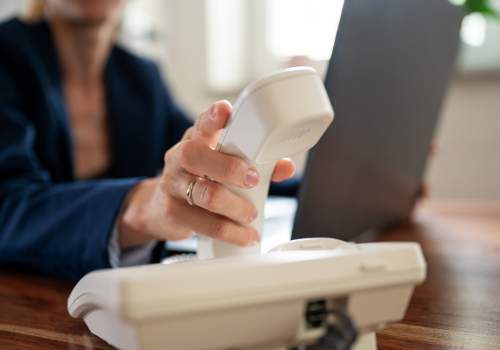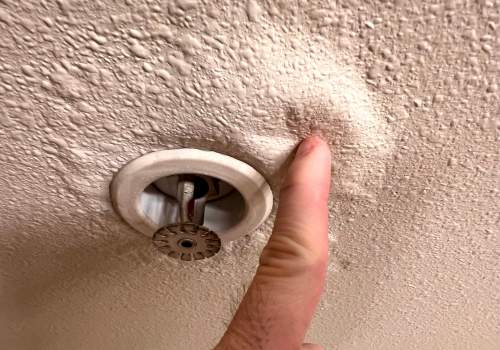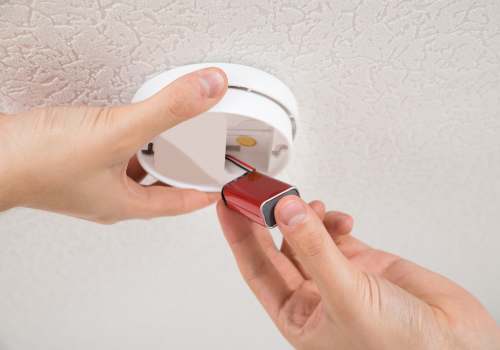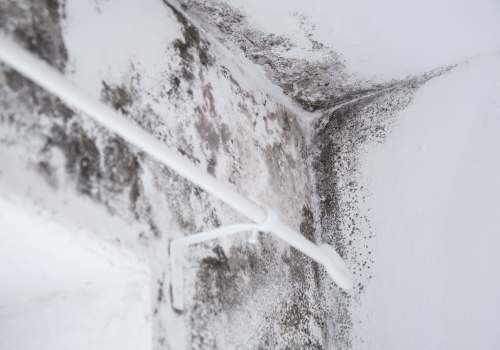25 Apartment Red Flags You Can’t Afford to Ignore
Like a detective examining clues at a crime scene, you’ll need to scrutinize every detail when hunting for your next apartment.
You’re about to make one of the most significant decisions affecting your daily life, and overlooking vital warning signs could lead to months or even years of regret.
While that freshly painted wall or newly installed granite countertop might catch your eye, it’s the subtle hints of trouble that deserve your closest attention.
Before you sign that lease, you’ll want to discover the telltale signals that separate a dream dwelling from a potential nightmare.

Excessive Wear and Tear
When inspecting a potential apartment, excessive wear and tear serves as one of the most telling indicators of poor property maintenance.
You’ll want to scan for deeply scuffed floors, chipped paint, damaged door frames, and worn-out carpeting that goes beyond normal aging.
These issues often reveal a landlord’s neglectful approach to upkeep and repairs.
Pay close attention to high-traffic areas like entryways, kitchens, and bathrooms.
Cracked tiles, loose cabinet handles, or warped countertops suggest years of deferred maintenance.
Don’t overlook ceiling stains, which can indicate ongoing water damage or plumbing problems that haven’t been properly addressed.
You should also examine windows and doors for proper functionality.
Sticky windows, doors that don’t close properly, or damaged screens point to systematic neglect.
Check the appliances too – if they’re outdated or showing significant wear, you’ll likely face reliability issues during your tenancy.
Poor Communication From Landlord

A landlord’s communication style before you sign a lease often predicts their responsiveness throughout your tenancy.
Watch for red flags like delayed responses to your initial inquiries, vague answers about maintenance procedures, or difficulty scheduling property viewings.
These early warning signs typically worsen after you’ve moved in.
Pay attention to how your potential landlord handles documentation and policy questions.
If they can’t clearly explain their late payment policies, maintenance protocols, or lease terms, you’ll likely face frustrating communication gaps during your tenancy.
Beware of landlords who prefer verbal agreements over written ones, as this can lead to disputes later.
Test their responsiveness by sending follow-up emails or making calls at different times.
If they consistently take days to respond or seem annoyed by your questions, consider it a serious warning sign.
A professional landlord should provide multiple contact methods and clear communication channels for emergencies.
Don’t overlook their communication style with current tenants.
If you notice other residents complaining about unresolved maintenance issues or poor response times, take these complaints seriously.
Remember, you’re entering a long-term business relationship that requires reliable two-way communication.
Missing or Broken Locks
Three security essentials should be in perfect working order before you sign any lease: the main entrance lock, apartment door lock, and window locks.
If any of these aren’t functioning properly or are missing altogether, you’re looking at a major red flag that could compromise your safety and security.
Don’t accept promises from the landlord to fix locks after you move in. Insist on seeing all locks operational during your walkthrough.
Test each window lock personally, and verify deadbolts are sturdy and properly installed.
If you notice signs of forced entry, such as damaged door frames or loose hardware, walk away immediately.
For multi-unit buildings, verify that building access codes are changed regularly and that exterior doors close and latch automatically.
Your unit should have a peephole or security viewer, and any sliding glass doors must have functional security bars or secondary locks.
Unusual Lease Terms

Beyond physical security concerns, lease agreements can hide serious problems in their fine print.
Watch for clauses that restrict your basic rights or impose unreasonable obligations.
If you spot terms requiring you to waive your right to maintenance repairs, accept the property “as-is,” or surrender your security deposit for normal wear and tear, walk away immediately.
Be particularly wary of leases that prohibit overnight guests, require landlord permission for visitors, or demand access to your social media accounts.
These invasive terms signal a controlling landlord who’ll likely interfere with your personal life.
Also, reject any lease containing automatic renewal clauses without notice or ones that give the landlord power to change terms unilaterally.
Don’t sign agreements with vague language about fees, unclear maintenance responsibilities, or arbitrary rules about noise and common area usage.
If the lease includes penalties that seem excessive – like charging hundreds for late rent or mandating professional cleaning services – you’re looking at potential exploitation.
Pushy Sales Tactics
Leasing agents who pressure you to sign immediately should set off major alarm bells.
When you’re pushed to make an instant decision or told “this is your last chance,” it’s often a manipulation tactic designed to bypass your due diligence.
A reputable property will give you reasonable time to review the lease and consider your options.
Watch out for aggressive discount offers that expire within hours or threats about other applicants waiting to sign.
These high-pressure techniques typically mask serious issues with the property or management.
You’ll also want to be wary of agents who discourage you from touring the actual unit or meeting current tenants.
Be especially cautious if they’re rushing through important lease terms or deflecting questions about maintenance, security deposits, or community policies.
If they’re using phrases like “everyone signs this way” or “this is standard practice,” demand clear explanations.
You’ve got the right to understand exactly what you’re signing.
Water Damage Signs

Spotting water damage early can save you from major headaches down the road.
Look for yellowish-brown stains on walls and ceilings, as these indicate ongoing leaks that could lead to dangerous mold growth.
Don’t ignore bubbling or peeling paint, which often signals trapped moisture behind walls.
Check corners and baseboards for warping, swelling, or soft spots.
These signs suggest water infiltration that’s compromising the structural integrity of your potential home.
Pay close attention to musty odors, especially in bathrooms and near windows – they’re reliable indicators of hidden water issues.
Inspect under sinks and around toilets for water rings, dampness, or corroded pipes.
Dark spots on hardwood floors or buckling laminate can reveal previous flooding or persistent leaks that haven’t been properly addressed.
During your walkthrough, test every faucet’s water pressure and look for unusual draining patterns.
Don’t let a landlord dismiss these warning signs as “minor issues.”
Water damage only worsens with time and can destroy your belongings while creating unsafe living conditions.
If you spot any of these red flags, either demand immediate repairs with documentation or keep searching for a better option.
Pest Problems
While water damage can create ideal conditions for unwanted guests, pest problems deserve their own careful inspection during your apartment hunt.
Look for droppings, especially in corners, under sinks, and along baseboards.
Inspect cabinets and drawers for signs of gnawing or pest debris.
You’ll want to check electrical outlets and pipes for gaps that could serve as entry points.
Don’t limit your investigation to daylight hours.
Visit the property at night when roaches and other nocturnal pests are most active.
Bring a flashlight and shine it into dark corners.
If you spot even one cockroach, remember that there are likely dozens more hiding nearby.
Pay attention to how neighboring units maintain their spaces.
Pest problems often spread between connected dwellings, so a messy neighbor could become your problem.
Ask direct questions about the building’s pest control policies and frequency of treatments.
Request documentation of recent pest control services and any ongoing management programs.
If the landlord seems evasive about pest control questions or refuses to provide records, consider this a significant warning sign.
Unreasonable Security Deposit Requirements

Security deposits can signal potential trouble with a landlord or management company.
When you’re asked to pay more than one or two months’ rent as a deposit, that’s an immediate red flag.
Most states have laws limiting security deposit amounts, so familiarize yourself with your local regulations before signing anything.
Be wary of landlords who demand cash-only deposits or won’t provide detailed documentation of the payment.
You need a proper receipt and clear terms about how and when you’ll get your deposit back.
If the landlord can’t explain their deposit calculation method or includes questionable fees, consider it a warning sign.
Watch out for lease agreements that make it nearly impossible to recover your deposit.
Some problematic clauses include charging for normal wear and tear, mandatory professional cleaning fees, or automatic deductions for repainting.
If the landlord’s past tenants consistently report difficulties getting their deposits returned, take their experiences seriously.
Don’t let desperation for housing cloud your judgment.
An unreasonable security deposit often indicates a landlord who’ll create other financial headaches throughout your tenancy.
Walking away from a bad deal now can save you significant stress and money later.
Bad Online Reviews
Three or more negative online reviews about the same issues should raise serious concerns about a rental property.
While you’ll find occasional complaints about any apartment complex, patterns of similar grievances warrant your attention.
Pay close attention to reviews mentioning maintenance delays, pest problems, safety concerns, or unresponsive management.
Don’t limit yourself to just one review platform. Check Google Reviews, Yelp, ApartmentRatings.com, and social media to get a thorough picture.
Look for detailed, specific reviews rather than vague complaints, and note whether management responds professionally to negative feedback.
Recent reviews matter more than older ones, as they reflect current conditions and management practices.
Be wary if you notice reviews mentioning lease violations by management, unexpected fees, or difficulty getting deposits returned.
These issues could directly impact your finances and quality of life.
Also, watch for reviews that have been suspiciously removed or if there’s an unusual number of generic five-star ratings posted within a short time frame.
These could indicate attempts to manipulate ratings and hide genuine tenant experiences.
Absent Smoke Detectors

Missing or non-functional smoke detectors represent a serious safety violation that should immediately disqualify a potential rental property.
Don’t let a landlord convince you they’ll install them later – this basic safety feature should already be in place during your initial viewing.
Most jurisdictions require working smoke detectors in every bedroom and common areas, and their absence suggests the property manager isn’t prioritizing tenant safety.
You’ll want to verify that existing smoke detectors are actually functional by pressing their test buttons.
If they don’t work, or if the landlord makes excuses about dead batteries, consider this a major warning sign.
Modern building codes often require hardwired smoke detectors with battery backups, especially in newer construction or recently renovated properties.
Neglected Common Areas
While landlords often focus on showing you individual units, the condition of common areas reveals the true level of property maintenance.
Pay close attention to hallways, stairwells, laundry rooms, and building entrances.
These spaces indicate how responsive management will be to your needs and how much they value their property’s overall upkeep.
Look for signs of neglect such as burnt-out lights, dirty carpets, overflowing trash bins, or broken security doors.
Check if the walls have peeling paint, the windows are dirty, or the floors show excessive wear.
These issues suggest the landlord cuts corners on maintenance and won’t address problems promptly in your unit either.
Don’t ignore the exterior common spaces. Crumbling sidewalks, untrimmed landscaping, and full parking lots with abandoned vehicles are red flags.
You’ll also want to observe whether basic services like snow removal and lawn care are being handled properly.
If the property manager can’t maintain these visible areas, they’re likely neglecting less obvious maintenance issues that could affect your safety and comfort.
Trust your instincts – if common areas look rundown, you’re better off finding another place.
Mold or Mildew Presence

Any signs of mold or mildew throughout an apartment should immediately raise concern, as these fungi indicate serious moisture problems and potential health hazards.
You’ll often spot these unwanted guests in bathrooms, around windows, under sinks, or in closets.
Black, green, or white spots on walls, ceilings, or corners aren’t just unsightly – they’re potentially dangerous to your health and can trigger allergies, respiratory issues, and other medical conditions.
Don’t let property managers dismiss mold concerns with promises of simple cleaning.
If you spot mold during a walkthrough, you’re likely seeing just the tip of the iceberg.
The visible growth often suggests larger problems within walls, including leaky pipes, poor ventilation, or structural issues that allow water infiltration.
These underlying problems won’t disappear with surface treatments.
You’re better off walking away from a mold-infested unit, as remediation can be extensive and costly.
If you’re already living in an apartment where you’ve discovered mold, document everything with photos and notify your landlord in writing immediately.
You have the right to a healthy living environment, and most jurisdictions have specific laws regarding mold in rental properties.
Electrical Issues
Just as mold can signal serious structural problems, faulty electrical systems pose another major threat to apartment safety.
You’ll need to watch for several key warning signs that indicate dangerous electrical issues in your potential new home.
Check every outlet in each room – they should be firmly secured to the wall without any visible burn marks, buzzing sounds, or warmth to the touch.
If you spot loose outlets, missing cover plates, or exposed wires, consider these serious red flags.
Test all switches, and be wary if lights flicker consistently or circuit breakers trip frequently when using normal appliances.
Look for outdated two-prong outlets or aluminum wiring (common in buildings from the 1960s and ’70s), as these can indicate the electrical system hasn’t been updated to meet current safety standards.
Pay attention to any burning smells, especially around outlets or appliances.
Don’t forget to examine the circuit breaker box – if it’s rusty, hot to touch, or making unusual sounds, you’re looking at potentially hazardous conditions.
Neighborhood Safety Concerns

A neighborhood’s safety profile deserves thorough investigation before signing any lease agreement.
You’ll need to assess both the immediate vicinity and surrounding areas, as crime patterns don’t respect neighborhood boundaries.
Check local crime statistics through police department websites or crime mapping tools, and pay attention to specific types of incidents rather than just overall numbers.
Don’t limit your research to official statistics.
Visit the area at different times of day, especially after dark, to observe the environment firsthand.
Watch for adequate street lighting, active neighborhood watch programs, and the general upkeep of nearby properties.
Poorly maintained areas often correlate with higher crime rates.
Talk to potential neighbors about their experiences and safety concerns.
They’ll likely provide insights that crime statistics won’t show.
Also, examine the building’s security features: working cameras, secure entry systems, well-lit parking areas, and proper locks on all doors and windows.
If the property manager seems dismissive about security concerns or hesitates to discuss recent incidents, consider it a warning sign.
You don’t want to compromise your safety for an otherwise attractive rental deal.
Below Market Rental Rates
While security concerns might make you wary of certain properties, unusually low rental rates should raise even bigger red flags.
When an apartment’s rent falls markedly below market value, you’re likely looking at a potential scam or serious property issues that the landlord isn’t disclosing.
You’ll want to investigate why the rent is so low.
Common explanations include deferred maintenance, pest infestations, structural problems, or utilities that don’t work properly.
Sometimes, landlords offer below-market rates because they’re desperate to fill vacancies due to high tenant turnover or neighborhood problems.
Be especially cautious of online listings with extremely attractive prices.
Scammers often copy legitimate rental listings, lower the price dramatically, and try to collect deposits from unsuspecting renters.
They’ll usually avoid in-person showings and pressure you to wire money quickly.
Don’t let the prospect of saving money cloud your judgment.
Research typical rental rates in your target area, and be skeptical of anything priced more than 20% below similar units.
Always insist on viewing the property in person and meeting the actual property owner or legitimate management company representative.
High Tenant Turnover

Frequent tenant turnover in an apartment building serves as a major warning sign that shouldn’t be ignored.
When you notice a revolving door of residents moving in and out, it often indicates underlying problems with the property, management, or both.
High turnover typically suggests that tenants are encountering issues serious enough to break their leases or refuse renewals.
You’ll want to investigate why previous tenants left.
Common reasons include poor maintenance response, safety concerns, pest infestations, noisy neighbors, or unresponsive property managers.
A building with constant move-outs can also impact your quality of life, as you’ll deal with frequent moving noise, elevator traffic, and a lack of community stability.
Before signing a lease, ask current residents about their experiences and research online reviews.
Check how long people typically stay in the building. If most tenants leave within a year, that’s a red flag.
You can also request information about the turnover rate directly from management – if they’re hesitant to provide this data, consider it another warning sign.
Poor Window Insulation
Poor window insulation ranks among the most costly and uncomfortable red flags in apartment hunting.
You’ll notice drafts, condensation between window panes, or visible gaps around the frames.
These issues signal potential energy waste and higher utility bills that’ll drain your wallet month after month.
Test windows during your apartment viewing by holding your hand near the edges – if you feel air movement, that’s a red flag.
Look for cracked caulking, damaged weather stripping, or windows that don’t close properly.
Single-pane windows in older buildings often provide minimal insulation compared to modern double-pane alternatives.
Beyond the financial impact, poor window insulation affects your daily comfort.
You’ll struggle with temperature regulation, leading to hot spots in summer and cold zones in winter.
The issues can also invite moisture problems, potentially causing mold growth that threatens your health and damages your belongings.
Don’t let a landlord dismiss window problems as minor inconveniences.
Request documentation of any planned upgrades or repairs before signing a lease.
If they won’t address these concerns, consider it a warning sign of future maintenance neglect.
Plumbing Problems

Faulty plumbing systems represent one of the most serious dealbreakers when inspecting potential apartments.
You’ll need to act as your own investigator by checking every faucet, toilet, and drain before signing that lease.
Run the water in sinks and showers while watching for irregular pressure, discoloration, or unusual sounds.
Low pressure often indicates pipe blockages or systemic issues, while brown water suggests rust in the pipes.
Don’t forget to examine under sinks and around toilet bases for water damage, mold, or previous leak repairs.
Flush toilets to verify they work properly and don’t continue running.
Ask about the water heater’s age and maintenance history – an old or poorly maintained unit can leave you with cold showers and high utility bills.
If you spot multiple plumbing red flags, you’re likely looking at an apartment with chronic maintenance issues.
You should also test drains for proper drainage and ask current tenants about any recurring plumbing problems they’ve experienced.
Unclear Maintenance Policies
A vague maintenance policy should immediately raise concerns when apartment hunting.
You need clear, written guidelines about how maintenance requests are handled, including response times for both routine and emergency repairs.
Don’t accept verbal assurances – insist on seeing these policies in your lease agreement.
Pay attention to red flags like maintenance staff who can enter your unit without notice, unclear boundaries between tenant and landlord responsibilities, or a lack of 24/7 emergency contact information.
You’ll want to know exactly who handles repairs, whether it’s in-house staff or third-party contractors, and how after-hours emergencies are managed.
Before signing, ask specific questions about the maintenance request process. Find out if there’s an online system or if you must call or email.
Question the typical response time for common issues like appliance failures, plumbing problems, or HVAC malfunctions.
Also, verify whether you’ll receive notification before maintenance enters your unit.
If management seems evasive or provides inconsistent answers about these policies, consider it a warning sign.
Your right to timely repairs and privacy shouldn’t be compromised by unclear maintenance protocols.
Outdated Appliances

Old appliances frequently serve as major warning signs when touring potential apartments.
You’ll want to carefully inspect each appliance’s condition, age, and functionality before signing a lease.
Pay attention to rust, unusual noises, or signs of frequent repairs, as these indicate potential breakdowns that could disrupt your daily life and lead to costly maintenance issues.
Check the manufacturing dates on appliances when possible, particularly for the refrigerator, stove, and HVAC system.
Appliances over 10 years old typically consume more energy and are more likely to fail.
You don’t want to deal with a broken air conditioner during summer or a malfunctioning heating system in winter.
Look for modern safety features on appliances, especially gas stoves and water heaters.
Older models might lack essential safety mechanisms, putting you at risk.
When inspecting the laundry facilities, outdated washers and dryers often signal higher utility bills and potential water damage issues.
Don’t hesitate to test every appliance during your tour.
Turn on the dishwasher, check the oven’s temperature accuracy, and run the garbage disposal.
If the landlord seems hesitant about appliance testing, consider it a red flag.
Strange Odors
Beyond checking appliances, your nose can detect serious problems during an apartment tour.
Strange odors often indicate underlying issues that could affect your health and wallet.
Pay attention to musty smells, which typically signal water damage, mold growth, or poor ventilation.
These problems won’t resolve themselves and could lead to respiratory issues.
Chemical odors might indicate recent attempts to cover up problems with paint or harsh cleaning products.
If you detect a strong bleach smell, ask what’s being cleaned and why.
Sewage odors point to plumbing issues that require immediate attention, while the scent of gas demands emergency intervention.
Don’t ignore persistent pet odors, as they often penetrate carpets and walls, requiring extensive cleaning or replacement.
You’re not being overly cautious by investigating smells – you’re protecting your investment and health.
Request that the property manager address any concerning odors before you sign a lease.
If they dismiss your concerns or claim the smell will dissipate on its own, consider it a warning sign.
No Documentation Provided

Professional landlords should provide complete documentation during the showing process.
If they can’t produce a written lease agreement, rental application, or other vital paperwork on request, you’re likely dealing with an unprofessional operation or potential scam.
Don’t proceed without seeing these important documents.
Insist on reviewing the complete lease agreement before signing or paying any money.
The document should detail rent amounts, security deposits, maintenance responsibilities, and house rules.
You’ll also need written documentation of any verbal promises made during the showing, such as repairs or upgrades to be completed before move-in.
Watch out for landlords who refuse to provide proof of ownership or proper licensing.
In many jurisdictions, they must show certificates of occupancy and proof that the unit meets local housing codes.
If they deflect these requests or claim the paperwork isn’t necessary, walk away.
Your rights and responsibilities should be clearly outlined in writing.
Without proper documentation, you’ll have no legal protection if disputes arise.
Parking Difficulties
Inadequate parking arrangements can signal major headaches ahead for apartment residents.
When you’re touring a potential apartment, pay close attention to the parking situation both during daytime and evening hours.
You’ll want to observe whether residents struggle to find spots or if they’re forced to park far from their units.
Watch for red flags like limited assigned spaces, tight parking spots that increase the risk of door dings, or a reliance on street parking.
If you’re dependent on street parking, you’ll need to factor in local parking regulations, street cleaning schedules, and potential safety concerns.
In urban areas, you might face additional challenges like permit requirements or costly garage fees.
Don’t forget to inquire about guest parking policies. Some complexes restrict visitor parking or require temporary permits that can complicate social gatherings.
Also, verify whether your rent includes parking fees or if they’re charged separately. Hidden parking costs can greatly impact your monthly expenses.
If you own multiple vehicles or anticipate getting another one in the future, confirm that the complex can accommodate your needs before signing a lease.
Previous Tenant Complaints

While parking issues may be visible during a tour, past tenant experiences can reveal deeper problems that aren’t immediately apparent.
You’ll want to research previous tenant complaints before signing a lease, as these can expose recurring issues with management, maintenance, or living conditions that might otherwise go unnoticed.
Start by checking online review platforms like Yelp, Google Reviews, and ApartmentRatings.com.
Look for patterns in complaints rather than focusing on isolated incidents.
Multiple mentions of pest infestations, delayed maintenance responses, or security concerns should raise red flags.
Pay special attention to how management responds to negative reviews – their tone and willingness to address issues speak volumes about their professionalism.
Don’t limit yourself to online research. If possible, talk to current residents about their experiences.
Visit the property at different times of day to observe conditions and resident interactions.
You can also contact the local housing authority to check for documented violations or complaints.
Remember, an apartment’s history of tenant complaints isn’t just about past problems – it’s a strong indicator of what you might experience as a future resident.
Unresponsive Property Management
A property manager’s responsiveness serves as one of the most essential indicators of your future living experience.
If you’re encountering delayed responses or complete silence during your apartment search, consider this a major warning sign.
When property managers don’t promptly address inquiries from potential tenants, they’re likely to be equally unresponsive once you’ve signed the lease.
Pay attention to how they handle your initial communications.
If it takes days to return calls or emails about basic questions, imagine how they’ll respond to urgent maintenance issues or safety concerns.
Test their responsiveness by asking specific questions about lease terms, maintenance procedures, and property policies.
You’ll want clear, timely answers before committing.
Watch for these specific red flags: calls going straight to voicemail during business hours, vague responses about maintenance timelines, lack of clear communication channels for emergencies, and absence of an online portal or formal system for submitting requests.
Don’t dismiss these signs – they often indicate deeper organizational issues that could greatly impact your quality of life.
FAQs
How Long Should I Wait After Viewing Before Making a Rental Decision?
You shouldn’t wait more than 24-48 hours to make your rental decision in competitive markets. If you’ve found a place that meets your requirements, act quickly before someone else claims it.
Can Landlords Legally Run Background Checks on All Adult Occupants?
Yes, your landlord can legally run background checks on all adult occupants with their consent. You’ll typically need to authorize this during the application process and may have to pay a screening fee.
What Insurance Coverage Should Renters Have Before Moving In?
Like a knight needs armor, you’ll want extensive renters insurance covering personal property, liability, and loss of use. Don’t forget medical payments coverage and additional living expenses if you’re forced to relocate temporarily.
Are Utility Costs Typically Higher in Older or Newer Apartment Buildings?
You’ll typically find higher utility costs in older apartment buildings due to less efficient insulation, outdated HVAC systems, and older appliances. Newer buildings often feature energy-efficient designs that’ll save you money long-term.
How Often Can Property Managers Enter My Apartment for Routine Inspections?
Your landlord must give you 24-48 hours’ written notice before entering for routine inspections. They can’t inspect more than quarterly unless there’s a specific concern. Check your lease and local laws for details.
Final Thoughts
Don’t let your dream apartment become a nightmare.
You’re investing significant time and money, so trust your instincts when these red flags appear.
Watch for crumbling walls, dodgy landlords, and questionable lease terms. They’re telling you something’s wrong.
Remember: a hasty decision today could lead to months of regret tomorrow.
Take charge of your rental search and protect yourself from these costly warning signs.